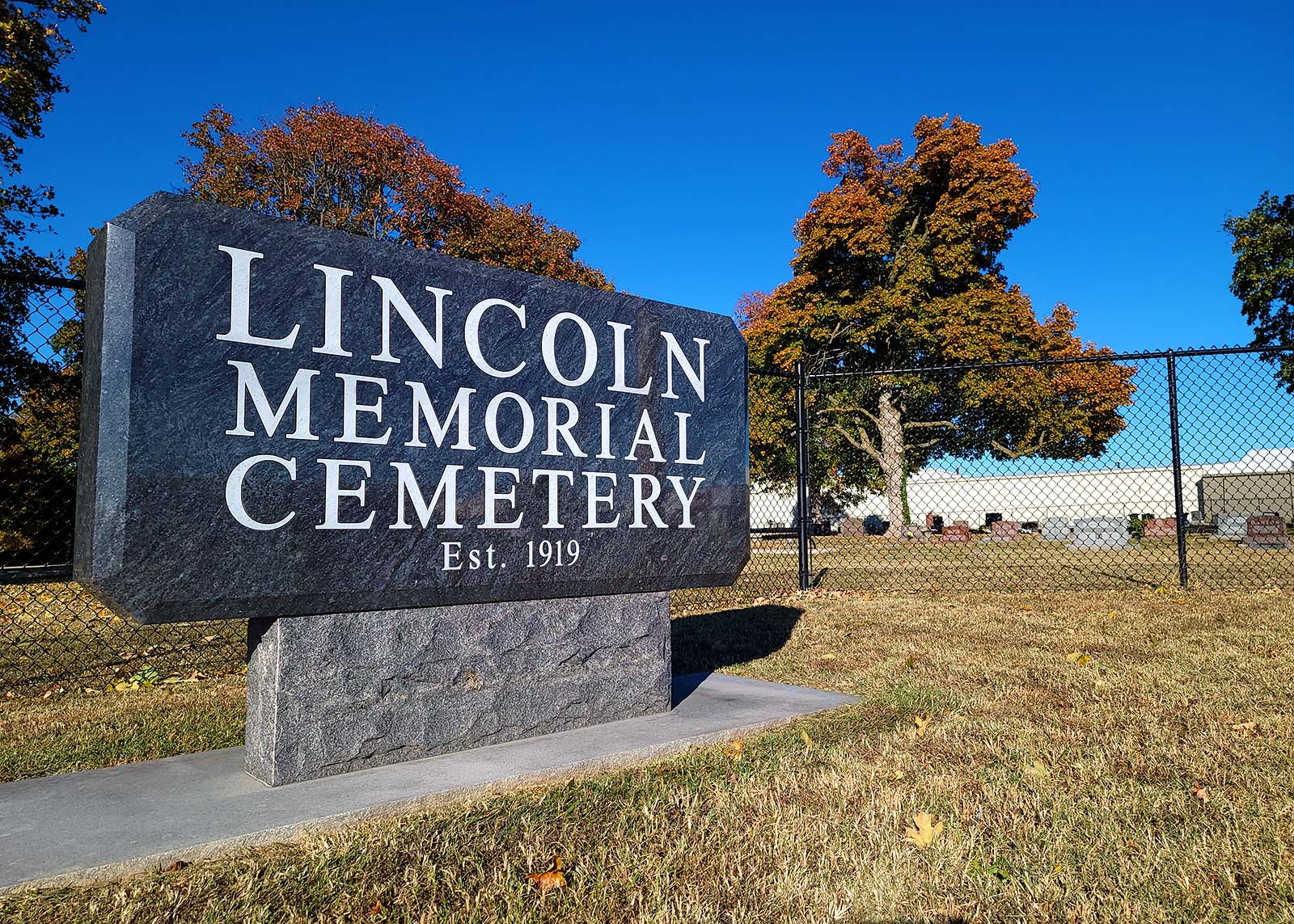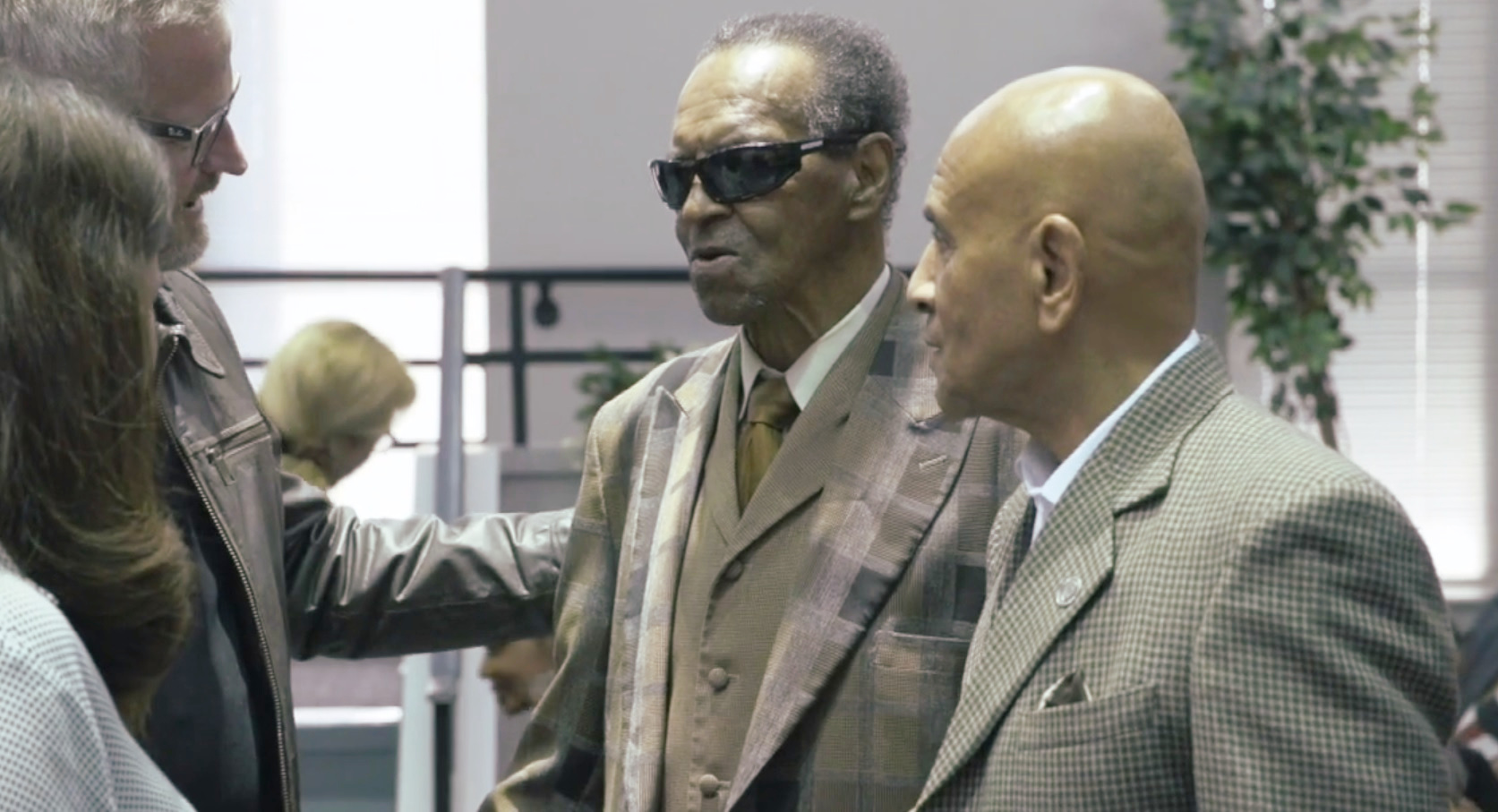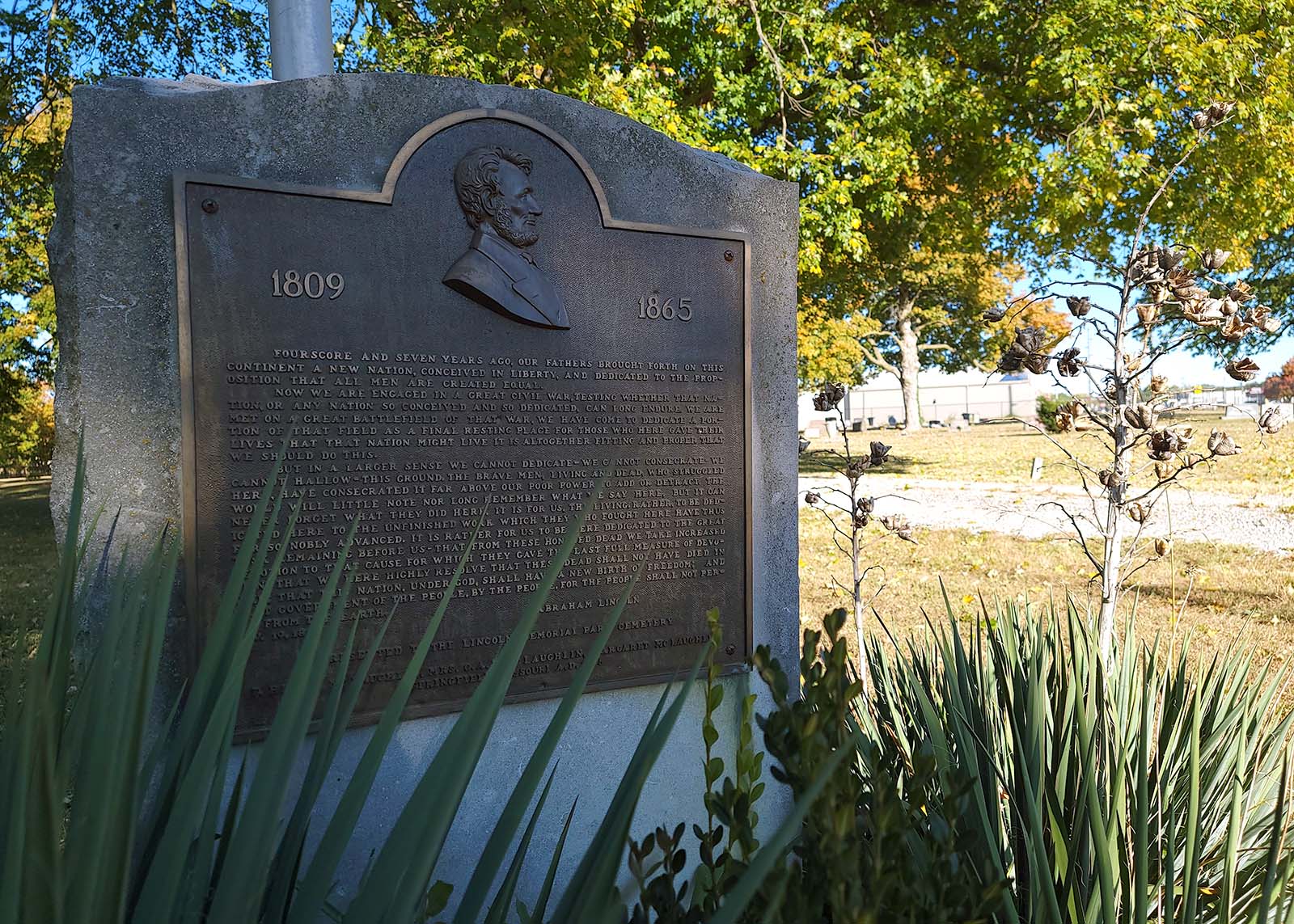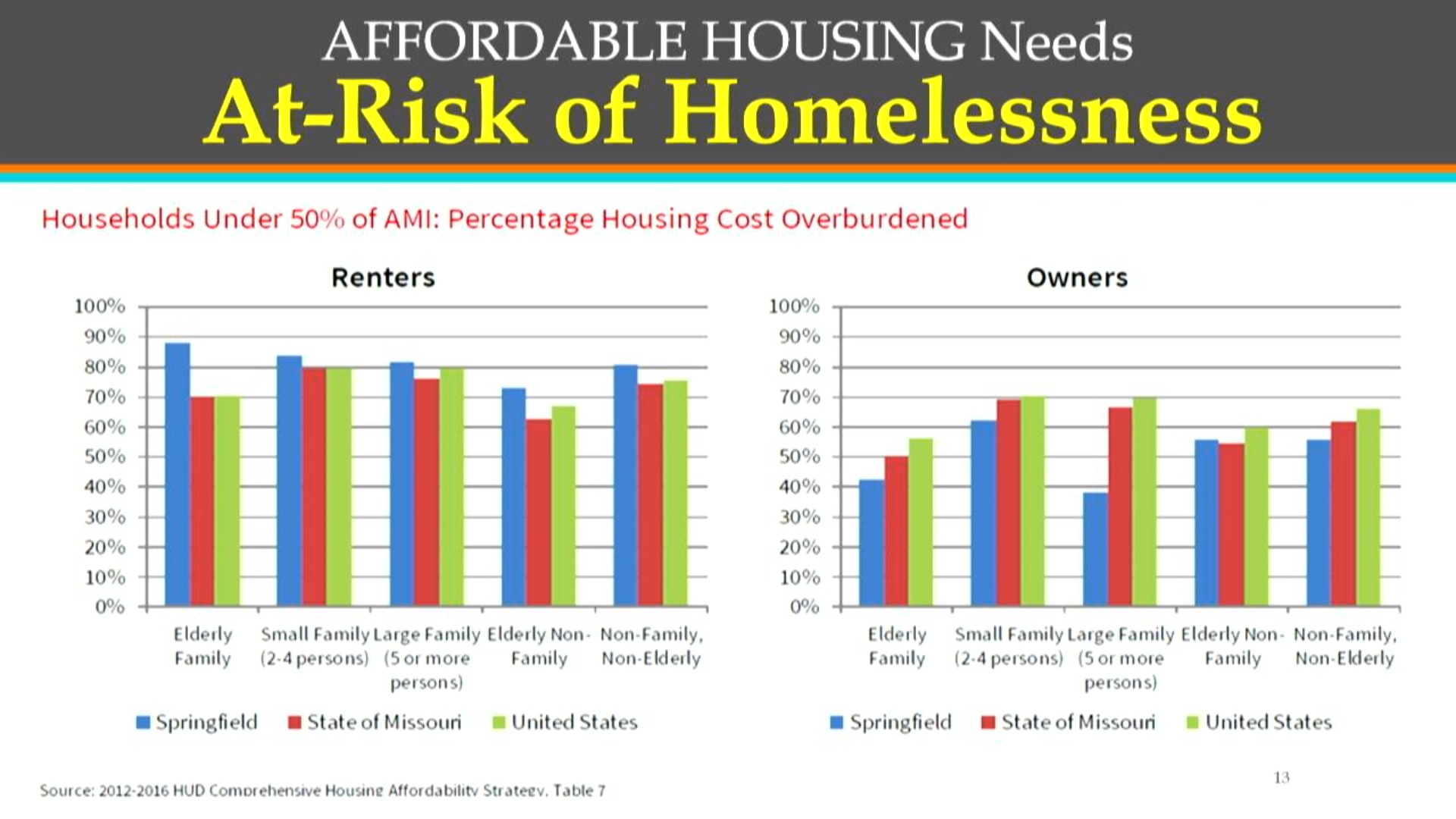It’s supposed to be a place of peace, remembrance and honor. Lincoln Memorial Cemetery sits off the corner of Chestnut Expressway and Barnes Avenue, a reminder of a time when racial divides affected the living and the dead, and a final resting place for about 1,200 people.
Founded in 1919, at a time when racial segregation divided Springfield’s schools, parks, libraries and even burial sites, Lincoln Cemetery was established as a place to offer dignified burial to Springfield’s African American population. Black Springfield residents were buried in public cemeteries before 1919, but in sections of the cemetery that were fenced off and divided from graves for white people. Lincoln Cemetery offered African American families the dignity of choosing their loved ones’ grave sites and markers.
Cheryl Clay is a member of the Lincoln Memorial Cemetery Board of Directors, a 501(c)(3) nonprofit group that assumed ownership of the cemetery in 2009. Their mission is to provide upkeep for the designated historic site that fell into disarray under a string of white owners in the late 20th century.
“If you know the early African American families that settled in Springfield and Greene County, you will find their names in Lincoln Memorial Cemetery,” Clay said. “That is my family cemetery. My grandparents, my great grandparents and my great, great-grandfather are buried in Lincoln Memorial Cemetery.”

On Nov. 14, the Springfield City Council will consider a final vote on a bill to put $7 million in federal COVID-19 economic relief funding into action in Springfield. Much of the bill puts American Rescue Plan Act (ARPA) funding toward projects devised to tackle issues of housing shortages and homelessness, but a $100,000 line item will help maintain Lincoln Memorial Cemetery.
“Lincoln Cemetery is part of the rich history and culture in Springfield, and is in need of some assistance,” Springfield City Manager Jason Gage said. “Those funds would address entry issues, restore fixtures, road surfacing and plantings.”
“The funds will allow the cemetery board to pave the gravel road, inside the cemetery repair large concrete urns and stabilize headstones,” Clay said. “This cemetery’s preservation is greatly appreciated by not only the board but by a lot of families in Springfield.”
Remembering Councilman Denny Whayne

In 2001, Denny Whayne became the first African American elected to the Springfield City Council since the council/manager form of government was adopted in 1953. Whayne served as the Zone 1 councilman for two consecutive four-year terms. Whayne served until 2009 and was a member of the Finance, Plans and Policies, Administration and Public Involvement committees.
Whayne died June 5, 2022, and he is buried at Lincoln Memorial Cemetery. Councilwoman Monica Horton made one of the first public calls to use ARPA funds for the cemetery as the City Council ARPA Committee began debating projects it could fund with a total of $40.2 million in allocations. Horton is also a friend to members of the Whayne family.
“Just today, I actually received a text message from Ms. Chrystie Harris, the daughter of former Councilman Denny Whayne, and she said, ‘Daddy would be smiling from ear to ear,’” Horton told Clay.
Clay finished her message to the City Council on Oct. 17 by quoting Whayne, who knew of the effort to ask for ARPA funding for the cemetery before he died.

“The Lincoln Memorial Cemetery is a sign of identity and heritage for our community,” Clay quoted.
The Springfield City Council unanimously passed a resolution in 2018 honoring Whayne for his public service and his decades-long commitment to justice and equal rights. The Busch Municipal Building’s fourth-floor conference room was named at the time as the “Councilman Denny Whayne Conference Room.” At a dedication ceremony in 2018, Whayne thanked everyone who had worked alongside him in each organization he was involved with.
“It wasn’t about ‘me,’ it was about ‘we,’” Whayne said. “Without you, there’d be no me, because we here are bound by citizenship.”
The public health concerns of the COVID-19 pandemic put a halt to many public gatherings and fundraisers, which Clay said hampered efforts to hold events to raise upkeep funds.
“The maintenance and upkeep for the cemetery depends on donations,” Clay said. “For the last two years, needless to say, we haven’t been able to have any fundraising to maintain the grounds.”
What else is in the ARPA bill?

Gage explained that the Springfield city government initially received an ARPA allotment of $40.2 million, about $30.25 million of which has been approved for distribution. Oct. 11, the City Council ARPA Committee met to dice up some of the remaining $10 million, which is broken into $7 million set aside for issues of homelessness and housing and another $3 million for the “COVID-19 critical services amount,” a contingency fund to be used on an as-needed basis.
The bill introduced on Oct. 16 includes provisions for the city of Springfield to spend:
$2.78 million for a non-congregate shelter, to be combined with about $2.22 million in U.S. Department of Housing and Urban Development (HUD) funds. The money will be used to buy land or an existing building and either construct or reconstruct a shelter for homeless persons designed to be a temporary stop on the way to more permanent housing.
$3 million for Community Partnership of the Ozarks to pursue its “purpose-driven day care center project.”
$650,000 for the Connecting Grounds to build a respite house, storage facility, showers and community outreach space for unsheltered persons. Connecting Grounds is a Springfield church group that specializes in outreach efforts to Springfield’s unsheltered population. Earlier this year, the City Council visited the Connecting Grounds to hear an in-depth presentation from Pastor Christie Love on issues impacting homelessness and potential solutions to explore.
$564,703 for an affordable homeownership program to be determined through a formal request for proposal process.
$150,000 for the Greene County Court Appointed Special Advocate (CASA) program for a clubhouse and playground for children in foster care.

